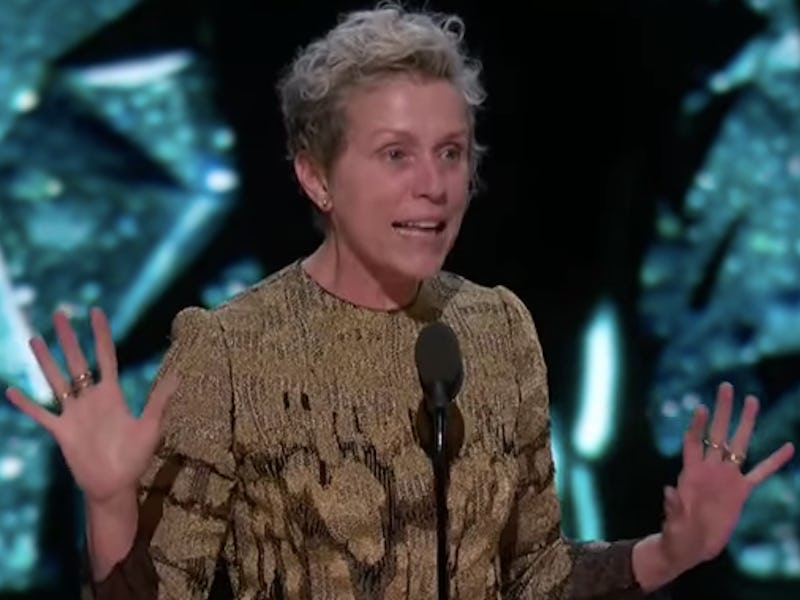What's an Inclusion Rider? Frances McDormand's Two Words to Change Hollywood
Her Oscar acceptance came with a message.

At the end of Sunday night’s Academy Awards ceremony, Frances McDormand stood at the podium to accept her award for Best Actress in Three Billboards Outside of Ebbing, Missouri and finished her speech with a term that most people have never of. “I have two words to leave with you tonight, ladies and gentleman, inclusion rider,” she said emphatically, before exiting the stage.
What was mysteriously McDormand referencing? An inclusion rider is a contractual clause that makes the Bechdel test look basic.
The idea is to implement a contractual way for talent to ensure that there are diverse hires on the films that they work on. When an actor signs on to work on a film, an inclusion rider in its most general form ensures that casting will reflect the demographic diversity of the place in which the film is set. For example, the world, which is 50 percent women. At its best, an inclusion rider could include a diversity clause for the film crew as well as who’s on screen.
The concept, which has also been called an equity clause, was spearheaded by Stacy Smith, a University of California professor and founder of the university’s Annenberg Inclusion Initiative. In a TED talk she gave in 2016, she spoke about how to make Hollywood more diverse and inclusive to female-identifying folks. One strategy she suggested was the inclusion rider, meant to give big stars a new means of leverage to control the level of diversity in the projects they decide to work on.
“For on-screen roles that are supporting and minor in nature, they have to be filled with norms that reflect the world in which we live,” Smith told The Washington Post following McDormand’s win.
A specific rider has been crafted by the civil rights and employment attorney Kalpana Kotagal. Their inclusion rider includes a requirement that hiring and casting is tracked and evaluated. If it doesn’t live up to the standards set forth in the rider, there could be financial penalties for the studio.
You can watch Smith’s entire TED talk, “The Data Behind Hollywood’s Sexism,” here.